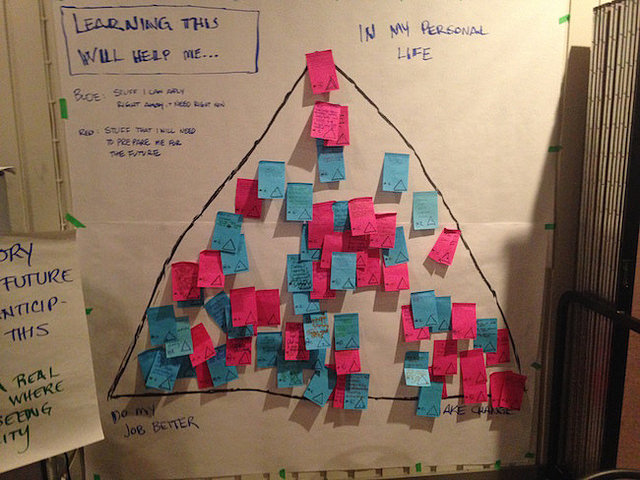I’m prepping for a small gig with a non-profit moving to a shared leadership model, and also reading a bit more on Cynefin strategy, and so there are a lot of tabs open in my browser this afternoon. instead of saving them all to an Evernote folder, I thought I’d share the best ones with you.
Recently in BC, we have a had a child die in the care of the state. This does happen from time to time, and when it does a process is triggered whereby the Representative for Children and Youth lanuches an investigation and makes recommendations which usually result in more rules and procedures to govern the child welfare system with the express purpose of never having it happen again. I work closely with child protection social workers in BC and there is not a single one I know of whose heart does not break when something like this happens. Everyone wears the …
A couple of good blog posts in my feed this morning that provoked some thinking. These quotes reminded me how much evaluation and planning is directed towards goals, targets and patterns that cause us to look for data that supports what we want to see rather than learning what the data is telling us about what’s really going on. These helped me to reflect on a conversation I had with a client yesterday, where we designed a process for dealing with this.
Regular readers will know that I’ve been thinking a lot about evaluation for many years now. I am not an evaluator, but almost every project I am involved in contains some element of evaluation. Sometimes this evaluation is well done, well thought through and effective and other times (the worst of times, more often than you think) the well thought through evaluation plan crumbles in the face of the HIPPO – the Highest Paid Person’s Opinion. So how do we really know what is going on? When I stumbled across Michael Quinn Patton’s work in Developmental Evaluation, a whole bunch …

Two weeks ago in our Leadership 2020 program I experimented with using a signification framework to harvest a World Cafe. We are beginning another cohort this week and so I had a chance to further refine the process and gather much more information. We began the evening the same way, with a World Cafe aimed at exploring the shared context for the work that these folks are in. Our cohort is made up of about 2/3rds staff from community social services agencies and 1/3 staff from the Ministry of Children and Family Development. This time I used prepared post it notes for …

